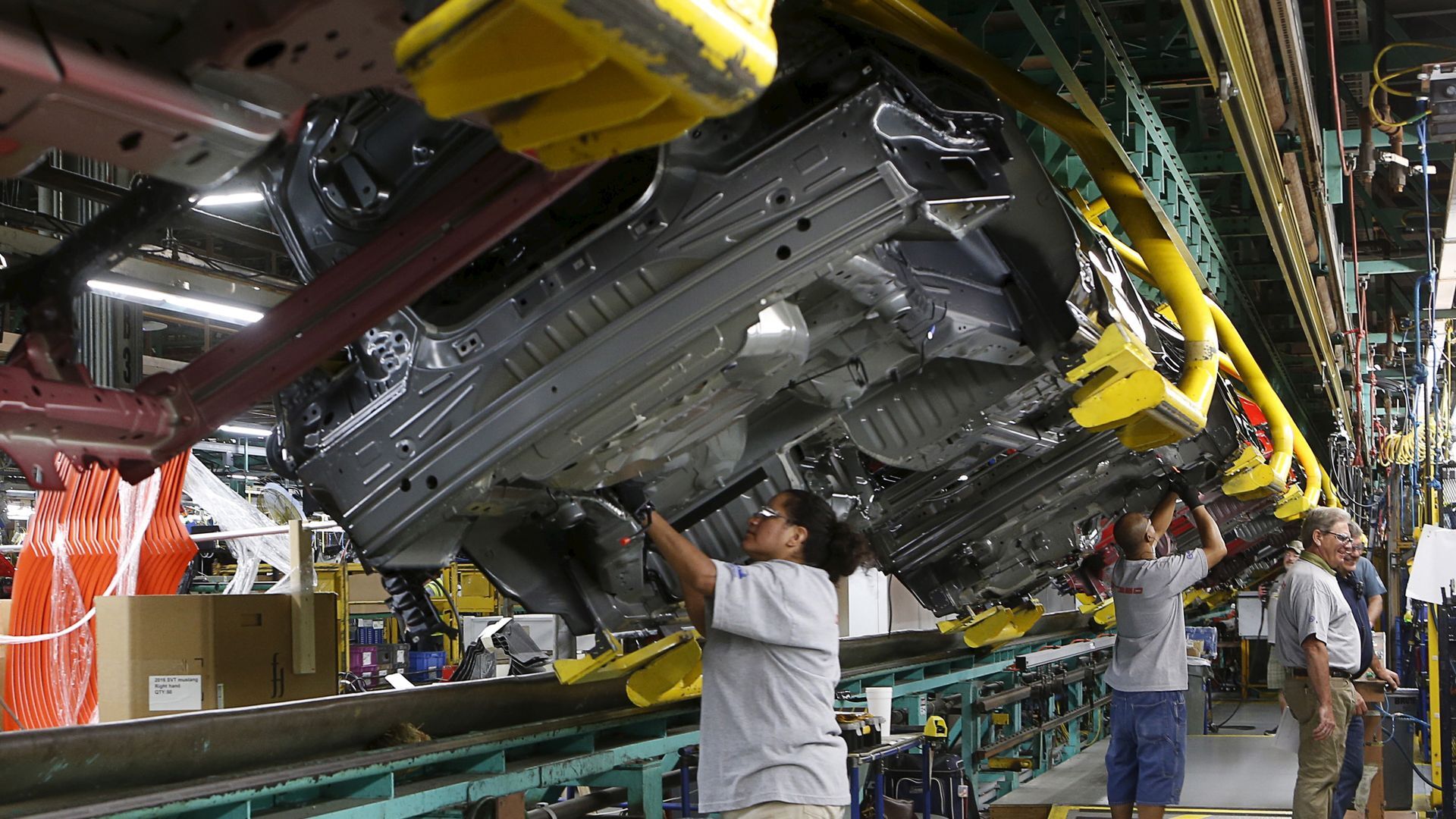Trump Grants One-Month Tariff Exemption to U.S. Automakers Amid Concerns Over Production Costs
U.S. automakers receive temporary relief from 25% tariffs on imports from Canada and Mexico, addressing concerns about increased vehicle costs and supply chain disruptions.
Subscribe to unlock this story
We really don't like cutting you off, but you've reached your monthly limit. At just $5/month, subscriptions are how we keep this project going. Start your free 7-day trial today!
Get StartedHave an account? Sign in
Overview
President Trump has granted a one-month exemption from 25% tariffs on imports from Canada and Mexico to U.S. automakers including Ford, GM, and Stellantis. This decision, following urgent industry requests, aims to shield the auto sector from increased costs and potential job losses due to tariffs designed to combat illegal immigration and drug trafficking. The exemption applies to vehicles meeting USMCA guidelines. Canada and Mexico plan retaliatory tariffs, raising concerns of escalating trade tensions. The exemption expires on April 2, potentially leading to further tariff actions and impacts on the auto industry's stability.
Report issue

Read both sides in 5 minutes each day
Analysis
- The Trump administration's one-month exemption from tariffs is seen as a temporary relief for the auto industry to avoid increased vehicle costs and potential job losses.
- Major U.S. automakers have expressed gratitude for the exemption, citing the necessity to maintain competitive edge, while also adhering to the USMCA requirements.
- Both Canada and Mexico are preparing retaliatory tariffs against the U.S., further complicating the auto trade landscape.
Articles (4)
Center (3)
FAQ
The U.S. automakers included in the exemption are Ford, General Motors, and Stellantis.
The exemption aims to shield the auto sector from increased costs and potential job losses due to tariffs, allowing companies to adjust their production processes without immediate economic disadvantage.
After April 2, reciprocal tariffs will take effect, potentially leading to increased costs for automakers and consumers if no further exemptions or agreements are made.
Canada and Mexico plan to implement retaliatory tariffs, which could escalate trade tensions and impact the stability of the auto industry.
History
- This story does not have any previous versions.



